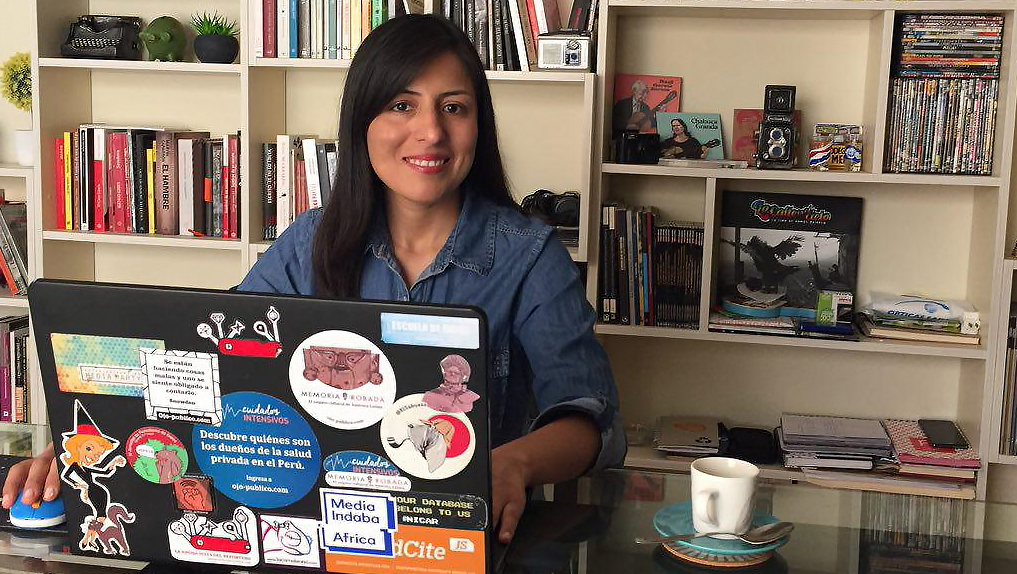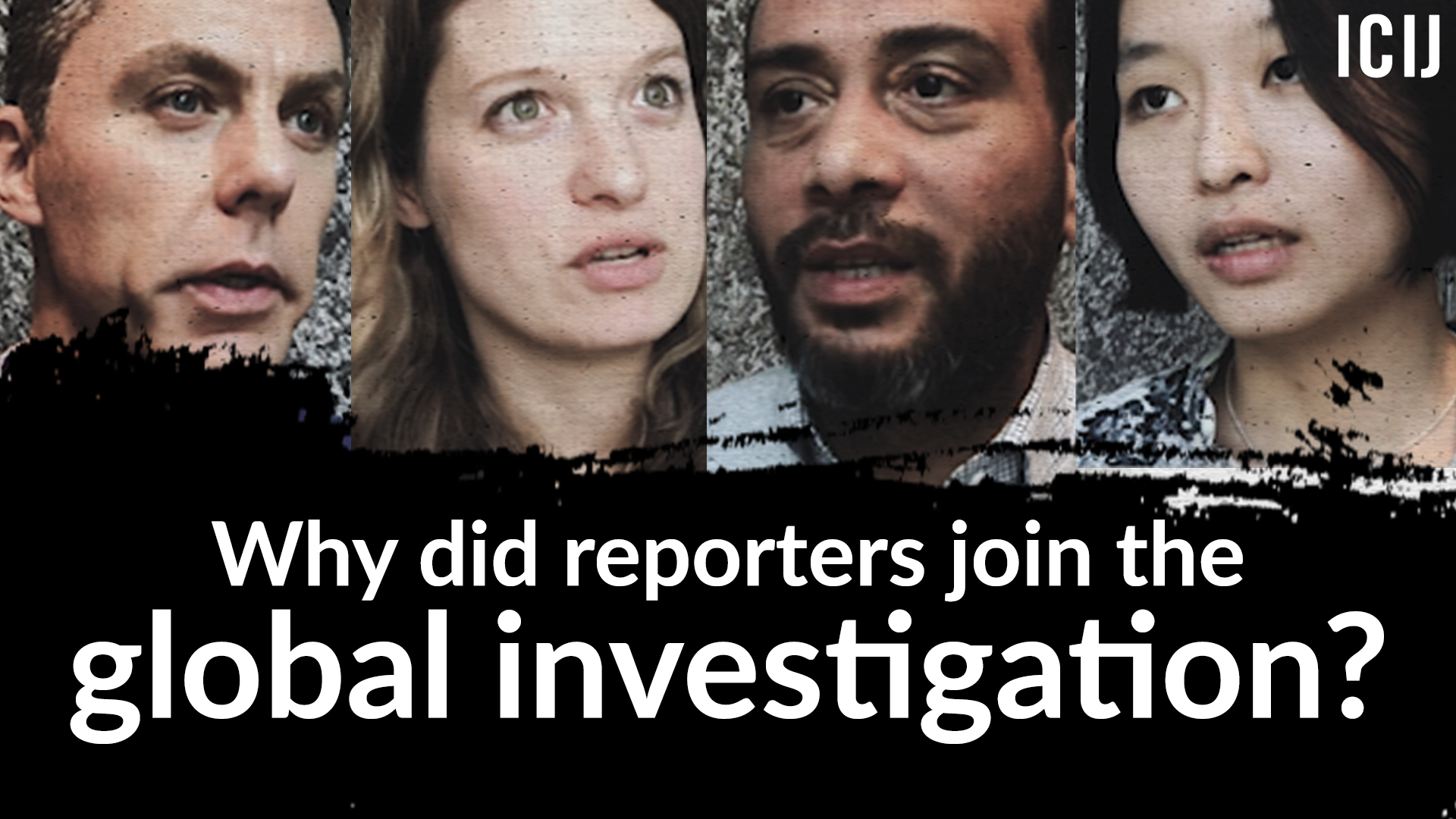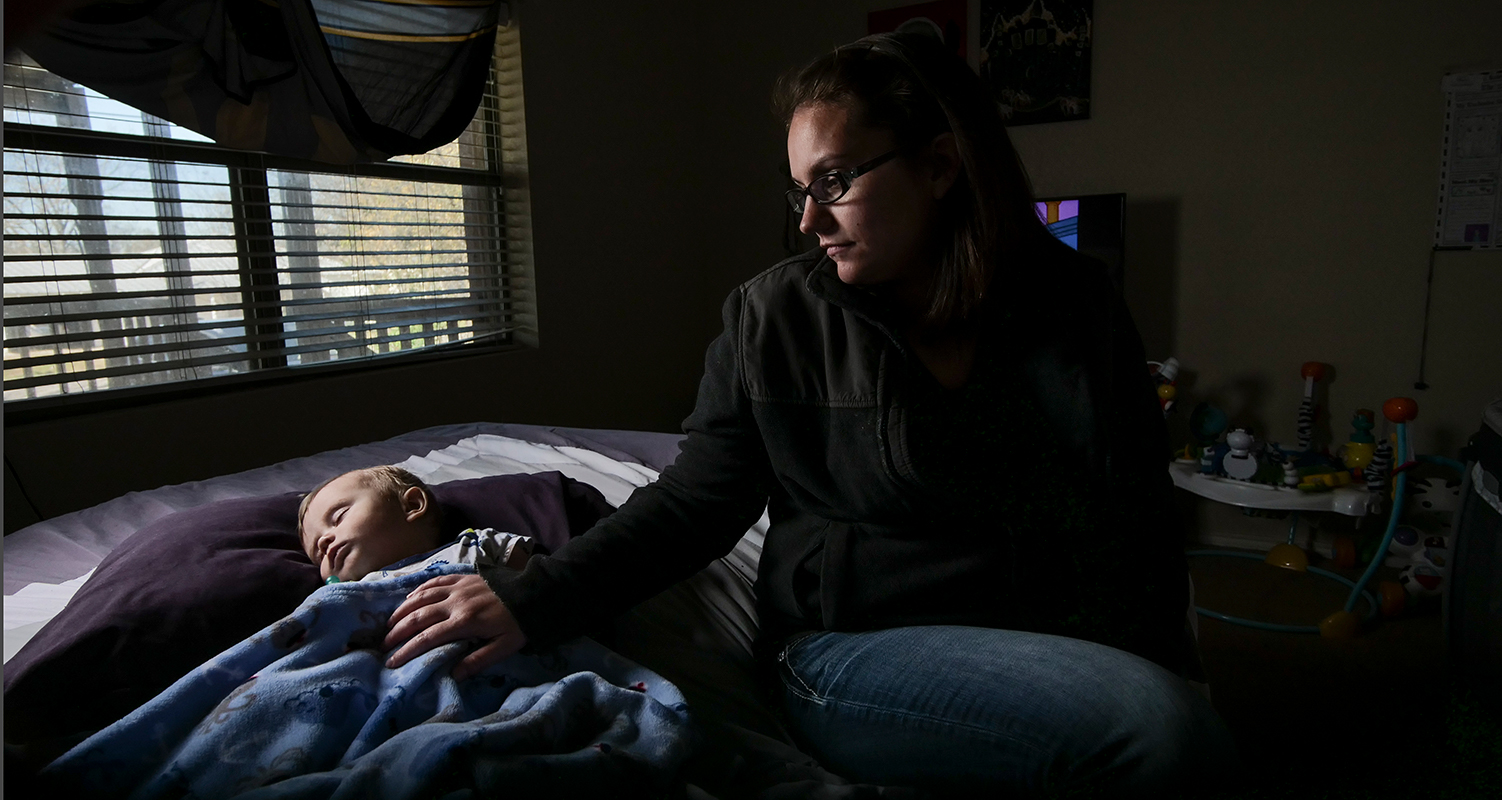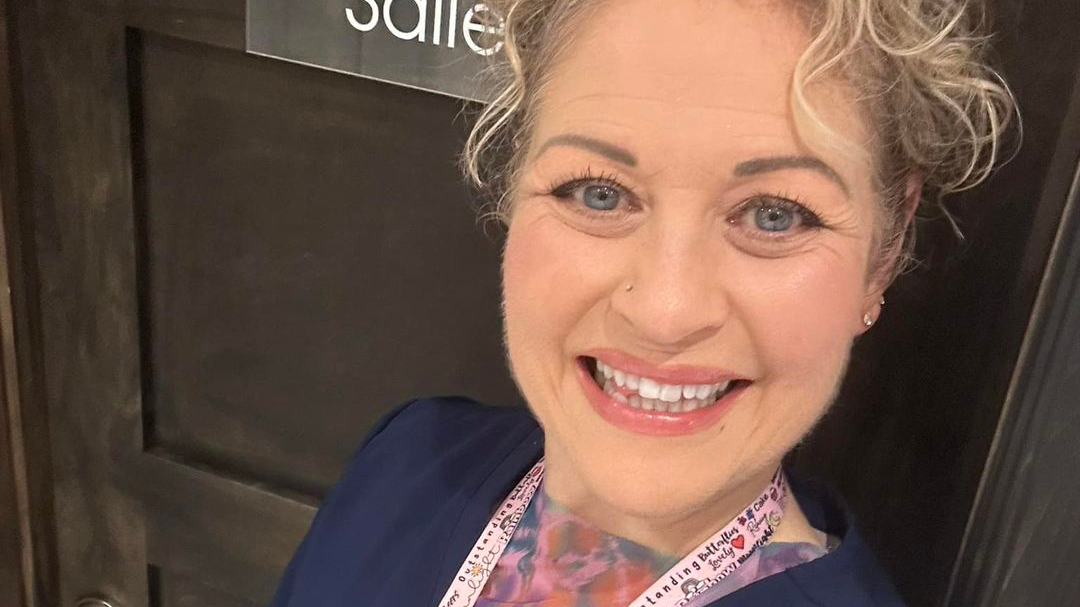The International Consortium of Investigative Journalists has hundreds of members across the world. Typically, these journalists are outstanding in their countries and have won many national and global awards. Our monthly series, Meet the Investigators, highlights the work of these tireless journalists.
This month, we speak to Peru’s Fabiola Torres, who co-founded the nonprofit investigative news outlet Ojo Publico in 2014 and specializes in health care investigations. Previously, Torres spent eight years at El Comercio, the largest Peruvian newspaper by circulation and coverage. Follow her on Twitter.
She explained how her passion for reporting on medical issues was fueled by both her vision of journalism as a public service and her family’s personal experience.
Ojo Publico recently published a series of investigations into the medical device industry as part of the ICIJ’s global Implant Files investigation. Why did you decide to join this project?
I became a reporter because I wanted to investigate the health industry to demonstrate how journalism is a public service. People need to know. If journalists don’t ask questions, this industry will do its work in darkness. They are accustomed to doing everything in secret.
For 10 years, I’ve tried to investigate problems like big pharma, Peru’s public health service and doctors. Everything I could do about this, I’ve tried to do. So I was happy to finally to see the Implant Files as a global investigation.
When ICIJ decided to investigate the medical device industry, I put all my energy into this series. The Implant Files investigation shows that we as journalists can focus not only on political issues but also on health.
I had to live with [my sister] in the public hospital for people who don’t have insurance. I knew the monster. I had to live inside it. – Fabiola Torres
How did you get into health care reporting?
It was a personal story. My sister had cancer in 2009. She died two years after that. I had to live with her in the public hospital for people who don’t have insurance. I knew the monster. I had to live inside it.
At that time, I could see what was happening in the oncology department. I could see many people didn’t have access to treatment and medicine. And I asked, why?
Peru’s public hospitals are the biggest hospitals in the country. But the hospital admitted that it didn’t have all the equipment it needed. I would see examples of medical equipment that was purchased but that never worked. I remember one case where the president of Peru came to a public hospital for a photo opportunity to open a new x-ray machine for radiation. But it didn’t work!
I saw how the public hospital sent patients away to private clinics. Treatments were delayed, sometimes by one month. And when it comes to cancer, it’s crucial to have therapy on time.
After that, I decided to investigate why some of these therapies and treatments either didn’t work or were not made available to patients, even when they pay. Why are prices for oncology medicines so expensive? Why don’t people have the opportunity to access good quality care?
After that, while still at El Commercio, I investigated something more complicated – clinical trials. I knew that, in Peru, not all doctors respect human rights.
Health is not always sexy for journalists. And I ask, why not? Everybody goes to the hospital, and everybody goes to a doctor and a dentist.
Well before Implant Files, you and Ojo Publico had produced some award-winning projects on health care and the medical industry. What are some of the big ones you remember?
Health care is a human rights problem. Every time I investigate a problem, I think: What does my mother need to understand? What does someone going to the doctor need to understand?
I trust medicine. But in this sector, as we have now proven, there is also corruption, fraud and bad science. We have to expose it.
That’s why, when I started Ojo Publico, I started with a project on intensive care and the economic power of the private system.
That project, called “Cuidados Intensivos,” built a news app to explore how large financial entities owned the private health care system. We looked at how Peru’s private health care system had grown to become controlled by financial sector actors, especially banks and pension funds, and maximize profits at the expense of patient care.] We made 52 official information requests and downloaded online archives. Then we built a search platform so patients could research the history of doctors, hospitals, private clinics and financial institutions.
My first data journalism project was to research doctors and the private healthcare system to find clinics and private hospitals that had paid financial penalties for medical malpractice, including inaccurate diagnoses and untimely treatment that, in one case at least, caused the death of a cancer patient. I found 32 private hospitals had been fined because they didn’t respect protocols, such as properly informing patients or having the required equipment.
What’s the biggest issue in the health sector? And what are the challenges?
I think one of the biggest problems in this industry is the conflict of interest that is created when doctors take money, training or travel from medical technology or pharmaceutical industries.
In Peru, doctors don’t have to declare anything in public, or to the hospitals they work for, about money or benefits they receive from the medical industry. You have to trust doctors. So what happens when they are influenced?
The agencies that make health care decisions aren’t transparent. It’s a big problem.
In Peru, like in many countries in Latin America, we have a freedom of information law. But Peru doesn’t publish everything in an accessible format.
For example, the information on Peru that we used to build the database [ICIJ’s International Medical Devices Database], is on an agency website, Digemid.
Digemid didn’t respond to our requests for interviews and didn’t want to give us any documents. They told us they didn’t have the information in the correct format or they told us the information was already online.
For what we needed to report on Implant Files, the information was in PDFs and could only be searched using an online search tool that was not easy to navigate. We used a lot of tools, like scraping [looking for particular words or phrases], to access this information. That’s the way we did it in the end.
What is your advice to journalists who want to start digging into the health sector?
Keep calm and ask for help.
No one knows all the work we have to do in order to make sense of things. Many people in Peru don’t even know “dispositivo medico,” the Spanish term of medical devices. So we have to learn first and ask for help. Fortunately, I have many friends who are doctors and sources.
Then try to read. Read a lot. Read everything to understand.
One of the things that was very important was to verify who is who in this industry. I need to identify who has the knowledge and information I need.
What is the driving characteristic for your work?
I’m very, very curious. For me, science and medicine is like, oh my God. I love to read and to see this stuff on television.
I’m especially interested in World War II. During this time, medicine made many advances. But it was also a time when we didn’t respect human rights. In Germany, they did lots of medical trials.
This year I saw an Argentinian film, Wakola. It’s a film about the doctor, Josef Mengele, who conducted medical trials in concentration camps during World War II. The film is about when he went to Argentina to escape. It shows how he lived and how he experimented with people. When it comes to medicine, I also like The Constant Gardener.
There are two things that I’m very passionate about: medicine and the mafia. I like to consume every thing I can about the mafia. I think that we can use the same techniques of investigative journalism that we use to investigate organized crime to investigate other topics, like the health sector.
What do you look for when you are hiring an investigative reporter?
People who are constant and patient.
There are many young people who come to me and say, “I want to follow you because I love your work.” But then they learn it isn’t like Hollywood, it isn’t always great, and you have to read a lot and do a lot of work that isn’t sexy. Searching in a database isn’t sexy.
Many people love apps, but they don’t know what’s behind making them. It’s not magic. It’s a lot of work.
What was the reaction to the Implant Files in Peru?
Elmer Huerta, a famous Peruvian doctor who works in the United States, wrote about the Implant Files. He said we have a big problem in Peru.
Many doctors wrote to us because they have more information to share. We have more stories in progress, because we need to dig into these tips and listen to these whistleblowers. [Editor’s Note: Share your story in Spanish or English]
We also wrote about a case that is under investigation by the anti-corruption agency. We had known about this story for some time but had to wait to publish it as part of the Implant Files.
The doctor under investigation is one of Peru’s leading scoliosis specialists and spine surgeons for children. He allegedly coordinated meetings with public sector hospital officials alongside the marketing representative of an implant company.
We reported that he recommended hospitals use spine implants from the company that had paid for him to travel overseas and paid for his training. He never mentioned his conflict of interest.
Many doctors wrote to us at Ojo Publico and said, “I recognize this is happening.” After our investigation into Korean-made dental implants showed some implants were poor quality or had never received regulatory approval, a dentist called me and said, “I will publish a picture of your story in my office and say I don’t work with these products.”
Finally, people want to talk about this issue. Before, people were afraid. They didn’t want to have any problem with their doctors. Until we published the Implant Files, people thought, ‘I’m grateful that I’m alive and not dead.’







